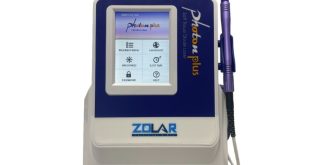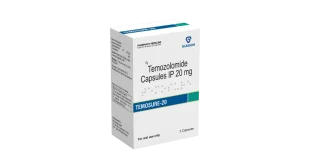Introduction
Traveling can be an exciting adventure, but for those with asthma, it can also be a source of anxiety. Ensuring you have your red asthma inhaler and knowing how to use it effectively while on the go is crucial. This guide will help you navigate the challenges of traveling with asthma, so you can enjoy your trip without compromising your health.
Understanding Your Red Asthma Inhaler
What is a Red Asthma Inhaler?
A red asthma inhaler typically refers to a short-acting bronchodilator, often known as a rescue inhaler. It’s designed to provide quick relief from asthma symptoms by relaxing the muscles around the airways.
How Does It Work?
The red inhaler contains medication that, when inhaled, targets the bronchial tubes in your lungs. This action helps to quickly open up the airways, making it easier to breathe. It’s essential for sudden asthma attacks or flare-ups.
Pre-Travel Preparations
Consult Your Doctor
Before you travel, schedule an appointment with your doctor. Discuss your travel plans and ensure your asthma is well-managed. Your doctor can adjust your treatment plan if necessary and provide advice tailored to your destination.
Get a Written Asthma Action Plan
A written asthma action plan outlines how to manage your asthma daily and what steps to take if your symptoms worsen. Carry this plan with you while traveling.
Packing Essentials
Primary Inhaler and a Backup
Always pack your primary inhaler and a backup in case one gets lost or damaged. Keep them in your carry-on luggage to ensure they’re easily accessible.
Additional Medications
Bring all your prescribed medications, including preventer inhalers and oral medications. Pack enough to last the entire trip, plus a few extra days in case of delays.
Spacer Devices
If you use a spacer with your inhaler, pack it as well. Spacers can help you get the maximum benefit from your inhaler.
Airport Security and Your Inhaler
TSA Guidelines for Medications
The TSA allows you to bring medically necessary liquids and medications in your carry-on. Keep them in their original packaging and declare them at the security checkpoint.
How to Pack Your Inhaler
Pack your asthma inhaler in a clear plastic bag along with your other medications. This makes it easier to present at security checkpoints and ensures it’s protected from damage.
Inhaler Use During Flights
Cabin Pressure Effects on Asthma
Changes in cabin pressure can sometimes trigger asthma symptoms. Be prepared to use your inhaler during the flight if necessary.
Tips for Inhaler Use on the Plane
Use your inhaler discreetly by covering it with a cloth. If you anticipate needing your inhaler, inform the flight attendants. They can assist you if you experience a severe asthma attack.
Managing Triggers While Traveling
Common Travel-Related Asthma Triggers
Travel can expose you to various asthma triggers such as pollen, dust mites, and pollution. Be aware of your triggers and take steps to avoid them.
Strategies to Avoid Triggers
- Use air purifiers or air conditioning in your accommodation.
- Avoid staying in places with known allergens.
- Wear a mask in highly polluted areas.
Asthma Management at Your Destination
Research Local Healthcare Facilities
Identify healthcare facilities near your destination. Know the location of the nearest hospital or clinic in case of an emergency.
Understanding Local Climate and Pollution Levels
Check the weather and pollution levels at your destination. High pollution or pollen levels can exacerbate asthma symptoms.
Emergency Preparedness
Recognizing Asthma Attack Symptoms
Know the signs of an asthma attack, such as severe wheezing, coughing, chest tightness, and difficulty breathing. Early recognition is crucial for timely intervention.
Steps to Take During an Asthma Emergency
- Use your rescue inhaler immediately.
- Follow your asthma action plan.
- Seek medical help if symptoms do not improve.
Travel Insurance Considerations
Choosing the Right Policy
Select a travel insurance policy that covers pre-existing conditions, including asthma. Ensure it provides coverage for medical emergencies and medication replacement.
What to Look for in Travel Insurance
- Coverage limits for medical expenses
- Emergency evacuation coverage
- 24/7 assistance services
Tips for International Travel
Language Barriers and Medical Care
Learn a few key medical phrases in the local language. This can help you communicate your needs if you require medical assistance.
Medication Regulations in Different Countries
Research the regulations for bringing medications into your destination country. Some countries have restrictions on certain medications.
Activities and Asthma
Safe Activities for Asthma Patients
Choose activities that are less likely to trigger asthma symptoms, such as swimming in chlorinated pools or taking leisurely walks.
Avoiding Strenuous Activities
Avoid activities that require heavy physical exertion, especially in high-pollen or polluted areas. Listen to your body and take breaks when needed.
Diet and Hydration Tips
Foods to Avoid
Some foods can trigger asthma symptoms. Common culprits include sulfites found in dried fruits, wine, and some processed foods.
Importance of Staying Hydrated
Staying hydrated helps keep your airways moist and can reduce the risk of asthma symptoms. Drink plenty of water, especially in hot or dry climates.
Conclusion
Traveling with asthma requires some extra preparation, but it doesn’t have to hold you back from exploring the world. By understanding how to manage your red asthma inhaler and taking the necessary precautions, you can enjoy a safe and stress-free trip. Remember to plan ahead, stay informed, and keep your inhaler close at hand. Safe travels!







